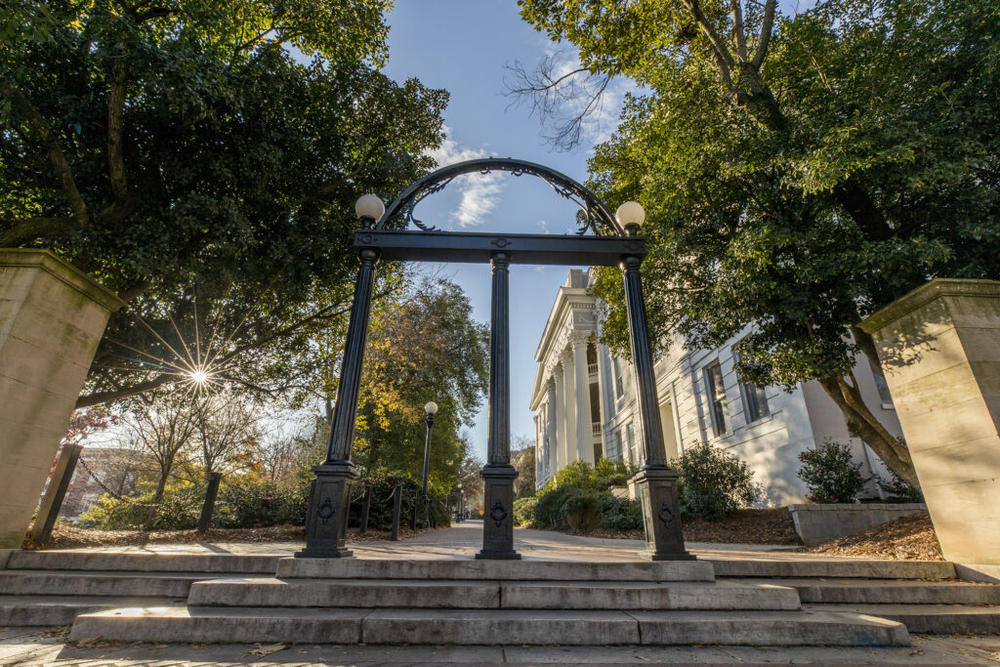
Section Branding
Header Content
Five months since Laken Riley's murder, what has UGA done to improve campus safety?
Primary Content

University of Georgia students are returning to class this week for the start of the first new academic year since the on-campus murder of nursing student Laken Riley in February.
The 22-year-old’s killing shocked the UGA community and sent political shockwaves across the country when the alleged murderer was identified as Venezuelan man who entered the country illegally.
In the months that have passed, university officials have announced more than $7 million in new on-campus safety measures.
Students might notice some of the more visible ones.
These include new “blue light” emergency phones equipped with cameras, many of them placed in peripheral areas of the campus and in parking lots.
The university also has hired new “campus safety ambassadors” to put more eyes and ears in areas where students congregate.
“These are additional personnel who work for the police department and are on duty from 7 at night until 3 in the morning,” said Dan Silk, UGA’s associate vice president for public safety. “They’re also available to give escorts to students. So if somebody’s at the library late studying and they want to walk back to the dormitory or something, they’re available for that.”
Silk encourages students to call the police department — or just walk up to a “campus safety ambassador” — to get an escort.
UGA’s less-visible new safety measures include a 20% bump in the campus police department’s budget — an increase aimed at raising officer salaries to attract and retain more officers — and license plate readers.
“Tragedies like [Laken Riley’s killing] serve to reinforce why initiatives that we have and safety matter so much,” Silk said. “It just magnifies our ongoing efforts.”
The announcements are being applauded by some public safety advocates in Athens — with some caveats.
“It’s an initial investment and we think more can be done,” said Susan Monteverde, of the anti-crime group SafeD Athens. “We’ve put forth programs and it seems like they’ve pulled from them with this investment without doing the whole entire program, so to speak.”
Monteverde says there needs to be better technological integration between the UGA and Athens-Clarke County police departments and more programs to address the needs of unhoused people, some of whom walk onto the UGA campus from the surrounding community, making students feel unsafe.
She advises students always to lock their vehicle and apartment doors, even if they expect to be away for just a moment, and to avoid walking alone.
Riley’s accused murderer, Jose Ibarra, is set to go on trial in November.
“There could have been efforts made to prohibit something like that from happening,” she said. “I don’t think you ever heal from something that tragic.”
Ibarra pleaded not guilty to charges of murder, aggravated assault, kidnapping and other crimes in May.
The larger question of illegal immigration continues to roil politics on national, state and local levels.

